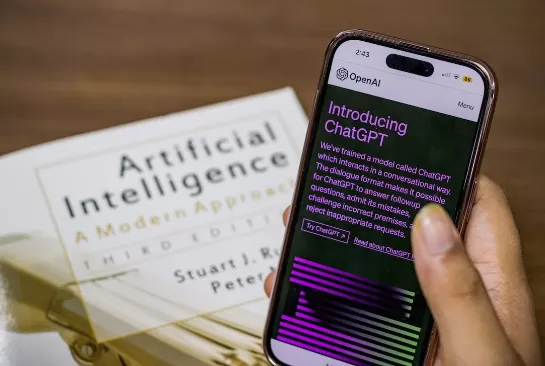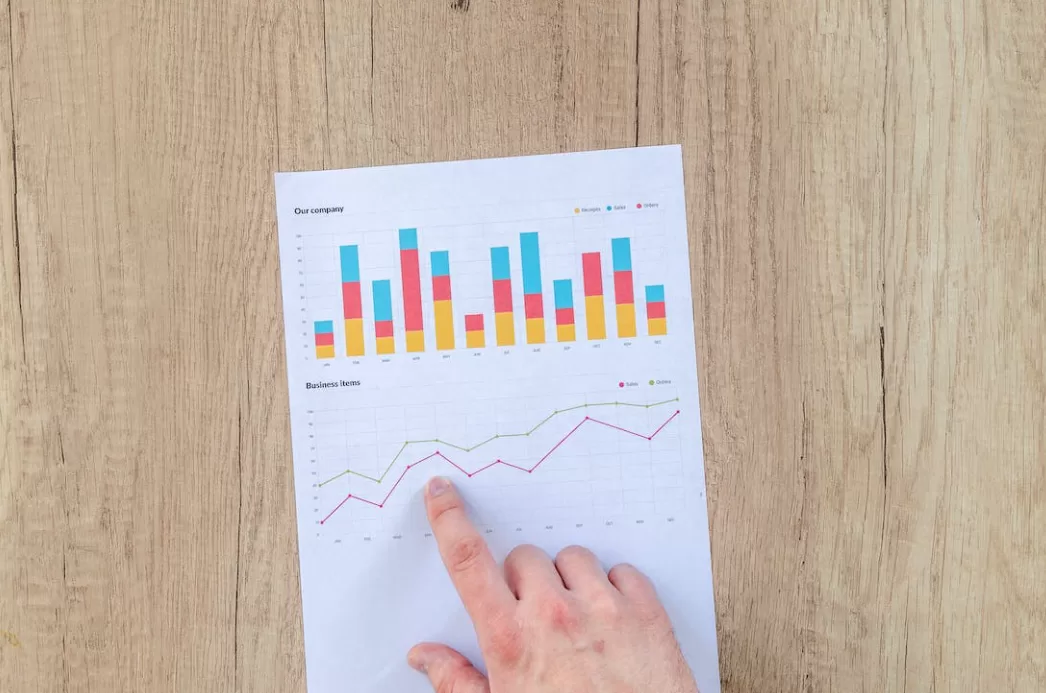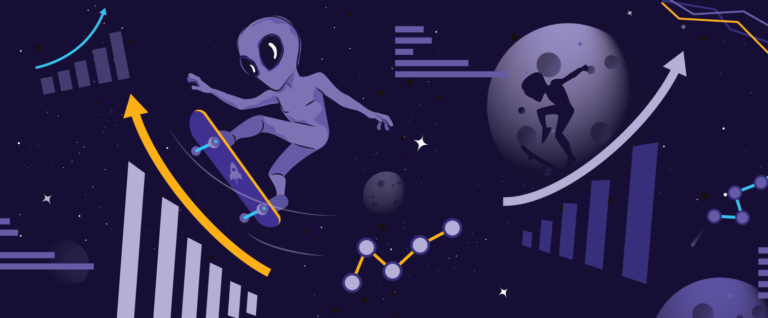Overseeing your company’s marketing activities is a tricky and time-consuming business. You want to get in front of your target audience and not waste your efforts on unproductive techniques. Using AI marketing campaigns can help your organization with redundant tasks that a machine can easily handle more effectively than a human.
Over the past few years, the use of AI in marketing has exploded. In this guide, we’ll walk you through a few AI marketing examples so you understand how using it can benefit your marketing activities.
Using Chatbots Can Revolutionize Your Customer Service Activities

If you’ve done any recent web surfing, you’ve likely encountered a website or two that uses AI-generated chatbots to answer customer questions. While some chatbots are based on a preprogrammed flow chart, others are AI-generated, incorporating machine learning and systemic programming to answer queries.
With an AI-powered chatbot, you can provide real-time customer service to potential and existing clients, no matter what time it is. That means your business is (partially) open 24 hours a day, seven days a week. Whenever a client has an inquiry, they can pose it to your chatbot, who will answer accordingly.
AI marketing campaigns that use chatbots save time on common customer questions your staff would otherwise need to handle. You can use them to advise clients on products that fit their needs, answer questions about your business hours, or provide answers regarding your return policy.
If the AI chatbot can’t answer their questions, the customer can simply say so, and their message will land in your inbox.
Incorporate an AI Recommendation Engine for Your E-Commerce Company
Do you sell so many products your clients have trouble sifting through them? Amazon and Netflix do, and they found a way to fix that — through an AI-powered recommendation engine.
AI recommendation engines examine your client’s prior purchases, browsing history, and interactions with your social media content to select products or services that align with their interests. For instance, a service like Amazon tracks your browsing history when logged into your account and recommends items for you on the front of their homepage based on what they understand about you.
Similarly, Netflix curates the “For You” selections based on prior movies and television shows you’ve watched. They may also recommend content based on what people viewed most in your region.
You can incorporate recommendations into your AI marketing campaigns. When you do so, you’ll likely see higher conversions simply because your audience will already be interested in the content.
Improve Customer Engagement with Predictive Analytics

What if you could predict a client’s future steps with mathematical accuracy? It might sound like science fiction, but through the use of AI in marketing, it’s entirely possible.
Predictive analytics is a branch of machine learning that uses a complex dataset to forecast a customer’s behavior. The data is typically a combination of insights gleaned from other buyers and the individual.
Predictive analytics can slice and dice data from various resources and use the information to help you better cultivate your marketing techniques to reach your customers and move them through your purchase funnel.
For instance, assume you run an e-commerce company that sells athletic gear. You track clients’ interactions with your brand through a comprehensive predictive analytics tool.
The tool predicts that 30% of your clients will open an email with the subject line “Take Our Test to Find The Best Running Shoes that Fit Your Style.” However, the alternative subject line of “10% Off Your Next Pair of Running Shoes” has a predicted open rate of just 7%.
The first subject line is the one you’ll want to use. You’ll see more customer engagement if the predictive analytics forecast is accurate.
Strengthen Your Personalization Efforts
A significant part of marketing is personalization. Customers who feel that your advertisements or content speak directly to their needs are more likely to take further action. Conversely, they’ll move right past what you offer if it doesn’t resonate with them.
When you incorporate AI personalization tools into your marketing toolbox, you’ll find it easier to connect with clients. Rather than taking a one-size-fits-all approach, you can develop ads that fit specific groups within your customer base or even your individual customers.
Your AI personalization process will do much more than highlight your recipient’s name in an email they send. It’s possible to create entire AI-selected newsletters curated especially for your client’s tastes based on the information the tool has about your customers.
Companies can use AI personalization tools to retarget customers who visited their website but didn’t finalize their purchase. Known as retargeting, ads for your products will display on other websites the client visits. For instance, if they viewed a book you have for sale, you could redisplay it on Facebook ads and search engines, reminding them of their recent interaction.
Improve Your Marketing ROI

Digital marketing can be pretty expensive. Thousands of companies are out there, all seeking to attract attention from clients who might want their business. When you go up against them, you might get a few new customers — or you could be throwing your money in the wind.
In a worst-case scenario, you’ll spend thousands of dollars on your marketing efforts, only to see most of them go to waste. If you’re the marketing director for your company, that isn’t a good look, and executives will likely wonder whether you’re the right person for the job.
That’s one primary reason why AI is so critical to your strategies. With AI, developing effective campaigns that deliver a return for your advertising dollars is much easier. Since AI incorporates machine learning, complex data analysis, and high speeds, you’re more likely to get the results you’re looking for than you would if you handled them on your own or with a small team.
If your executive team isn’t sold on AI, show them a few of our AI marketing examples. It may be enough to turn their heads.
Best Practices for Successful AI Marketing Campaigns
Like all things digital, you’ll want to follow a few best practices to maximize your marketing budget when using AI. Here are some tips to get started.
Determine Where Your Marketing Campaigns Can Most Benefit from AI
AI is best for routine, repetitive tasks. It’s not the best resource for new creative endeavors. After all, much of the information gleaned through AI comes from prior sources, not new ideas.
Think about your current marketing strategies and where you spend the most time. Do you receive hundreds of customer inquiries daily, many of which could be answered if your clients simply read your website? Or are you having difficulty closing customer sales?
AI tools can address both of these problems effectively, with little manual intervention required on your part. They’ll save you time, freeing you to work on more critical tasks.
Don’t Rely Entirely on AI for Your Content
There’s been quite an uproar in the content world, especially concerning AI-generated blogs and images. If you want to maintain your company’s unique voice, you’ll want to avoid those tools — especially when creating articles that offer a fresh perspective.
Regurgitating information from an AI-based tool isn’t likely to generate any new fans, especially if 200 other companies pasted the same article on their website. However, it can be tempting to turn to those tools, especially if you have few hands, and writing articles on your own is nearly impossible.
While search engines consider many factors when deciding how to rank your content, one thing remains clear — they prioritize new information and different perspectives. Rather than looking to AI for your content needs, use your time savings from other AI-based marketing tools to focus on the more creative aspects of your advertising strategy.
The Use of AI in Marketing Will Continue to Grow
As companies learn more about how AI can benefit their organization, there’s no doubt that new AI tools and services will continue to crop up. While not every AI tool will help your business, many can. It’s your job to discern which ones are most helpful to you and whether they’re worth a financial investment.
AI marketing campaigns can make handling some of your most tedious tasks much more manageable. Additionally, they can help you target your client base and form stronger connections with your audience. Use our suggestions as a starting point for incorporating AI into your advertising practices, and you’ll see improvement in your marketing campaigns.

